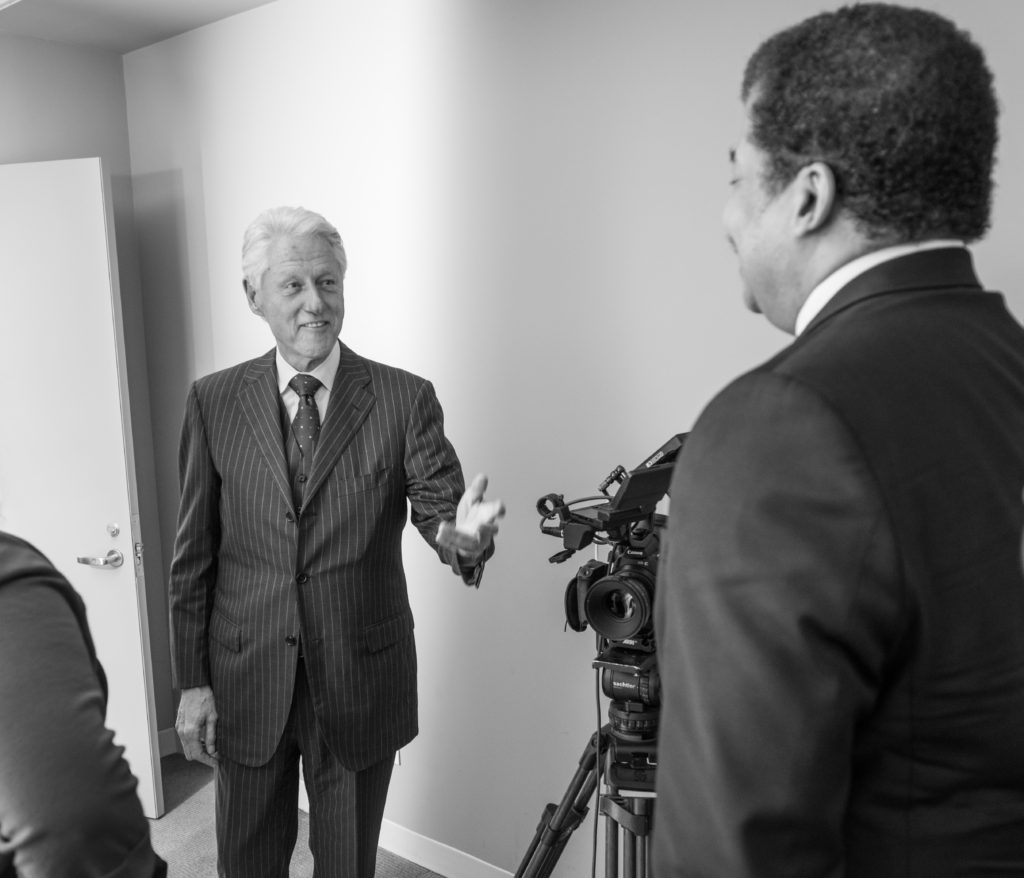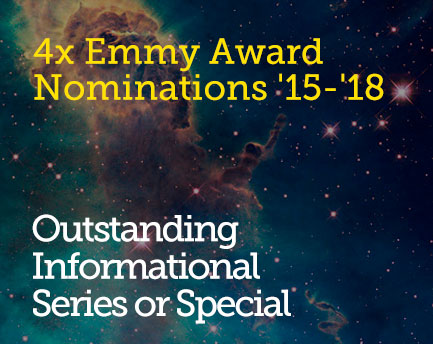November 4, 2015 7:54 pm
Do you want more scientifically literate politicians? Preview Friday’s episode with Neil Tyson and Bill Clinton

President Bill Clinton and Neil deGrasse Tyson. Photo Credit: Brian Stansfield.
As best as I can tell from comments we get on our various social media channels, and on the comments section of each of our episodes, we have fans from all points along the political spectrum, from the far left to the far right and everything in between.
So I know that some of our fans may decide to pass on this week’s podcast, where Neil deGrasse Tyson interviews former President Bill Clinton – and I want to suggest that that would be a mistake.
You see, whether you think Bill Clinton was a good president or not (and we’re not even all in agreement here among the StarTalk Team), during his watch we cracked the code on the human genome, launched the Hubble Space Telescope, and increased spending for the National Science Foundation, Department of Energy, and National Institutes of Health.
As we find out in this episode, the former president is a firm believer in funding scientific research.
In fact, one of the more interesting parts of the show is when both Neil and President Clinton share their disappointment that we canceled funding for the Superconducting Super Collider program here in the United States, allowing the folks at CERN to discover the Higgs boson, when we could have done it sooner if we’d just stayed the course.
As President Clinton explains it, it was easier to get funding for the Human Genome Project, which leads to breakthroughs in biology, medicine and health, than it was to sell the Super Collider, which “only” leads to breakthroughs in physics, the importance of which is harder to grasp for some politicians.
That’s exactly what this episode is all about: the intersection of science and politics, and the importance of having scientifically literate presidents and politicians at all levels of government.
Professor Richard A. Muller, the author of Physics for Future Presidents and a reformed climate change denier, calls in to the show to discuss the difficulty politicians have in staying informed about the constantly changing frontier of scientific knowledge.
Bill Nye chimes in with a review of some of our most effective “scientists in chief.”
In studio, Neil, co-host Chuck Nice and futurist Juan Enriquez talk about the importance of “trickle down curiosity” that begins at the highest levels of government.
Juan, who “thinks and writes about profound changes that genomics will bring in business, technology, and society” and has given 4 TED talks on related subjects, raises the question, “How do we make science boring… how do we turn kids off to this stuff?”
If you’re a StarTalk fan (and why you’re reading this if you’re not is beyond me), then you know that increasing science literacy is at the heart of what we are as a show.
Whether you believe the impetus for that should come from the top down or from the bottom up, and whichever side of the political aisle you are on, this episode will give you plenty to think about.
Join us for Decoding Science and Politics with Bill Clinton this Friday at 7pm EST, right here on the website, or via iTunesPodcasts, SoundCloud, Stitcher, and TuneIn.
That’s it for now. Keep Looking Up!
–Jeffrey Simons
Get the most out of StarTalk!
Ad-Free Audio Downloads
Priority Cosmic Queries
Patreon Exclusive AMAs
Signed Books from Neil
Live Streams with Neil
Learn the Meaning of Life
...and much more

 Become a Patron
Become a Patron

